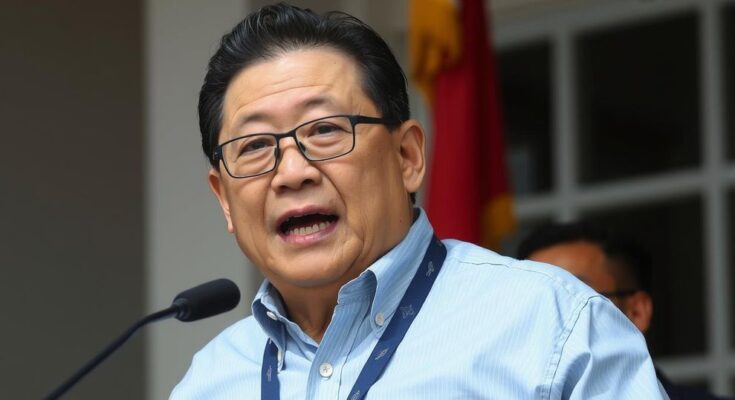Lim Kimya, a Cambodian opposition politician and critic of the government, was shot dead in Bangkok shortly after his arrival. His relentless advocacy on issues of corruption and human rights made him a prominent figure in the CNRP. Despite facing severe governmental opposition, he remained committed to his political beliefs and voice until his tragic assassination.
Lim Kimya, the Cambodian opposition politician tragically shot dead in Bangkok, was a committed advocate for human rights and government accountability. His assassination occurred just after his arrival in the city, igniting concerns about the safety of Cambodian dissidents abroad. As a former member of the Cambodia National Rescue Party, Lim Kimya was known for his relentless criticism of Prime Minister Hun Sen and his administration, particularly regarding issues of corruption and the integrity of humanitarian aid distribution. Despite threats, Lim Kimya continued to expose governmental failings through his public commentary and social media presence.
Lim Kimya was born in Battambang province and pursued higher education in France before returning to Cambodia to engage in political life. His political career was marked by a notable parliamentary performance in the 2013 elections, where the CNRP captured 44% of the National Assembly seats. However, the party was banned by the Supreme Court before the 2018 elections, severely limiting its political influence. Known for his forthrightness, Lim Kimya did not shy away from criticizing the ruling party, even in the face of direct confrontation from the Prime Minister at an assembly meeting.
His activism was not limited to parliamentary debates; Lim Kimya was involved in protests against the government’s policies and the conduct of its officials. Throughout the years, he made regular social media posts commenting on pertinent national issues, indicating his intent to remain politically active even after the CNRP’s dissolution. In his final posts, he voiced opposition to events organized by Hun Sen’s family, reflecting his ongoing commitment to public service and accountability.
The Cambodian government has distanced itself from the assassination, asserting that Cambodia cannot be implicated in actions taken within the jurisdiction of another state. However, Lim Kimya’s death raises significant questions about safety for opposition voices in foreign countries, such as Thailand, which has seen increasing hostility towards Cambodian dissidents. As investigations proceed, the implications of Lim Kimya’s assassination may resonate profoundly within the landscape of Cambodian politics and the struggle for democratic freedoms.
To summarize, Lim Kimya’s advocacy for human rights and accountability in the Cambodian government positioned him as a notable figure in opposition politics. His untimely death underscores the perilous conditions faced by political dissidents in the region, and the responses from both local and international entities will be critical in shaping future dialogues on human rights and political freedoms in Cambodia.
Lim Kimya’s assassination in Bangkok has highlighted the dangers faced by Cambodian opposition figures. A member of the CNRP, his vocal criticism of the ruling Cambodian People’s Party under Prime Minister Hun Sen made him a target. The CNRP, which showed significant electoral strength in the 2013 elections, was subsequently banned in 2017. Lim Kimya’s longstanding critique of government corruption and mismanagement places him within a legacy of politicians advocating for greater transparency and civil rights in Cambodia, despite severe repercussions for such political engagement.
In conclusion, Lim Kimya’s assassination represents a grave loss for Cambodian civil society and a significant escalation of risks for political dissenters in the region. His commitment to addressing corruption and advocating for human rights, even in the face of imminent danger, serves as a poignant reminder of the struggle faced by many opposition figures in authoritarian contexts. As investigations into his murder unfold, they may reveal broader implications for political freedom and safety for dissidents in Cambodia and beyond.
Original Source: www.rfa.org




